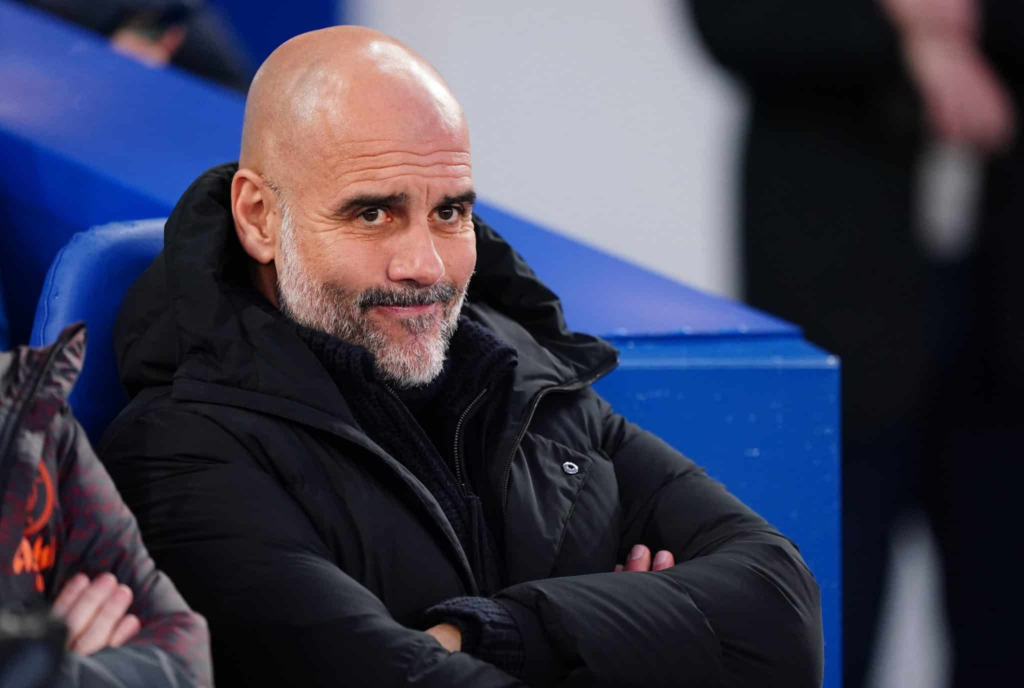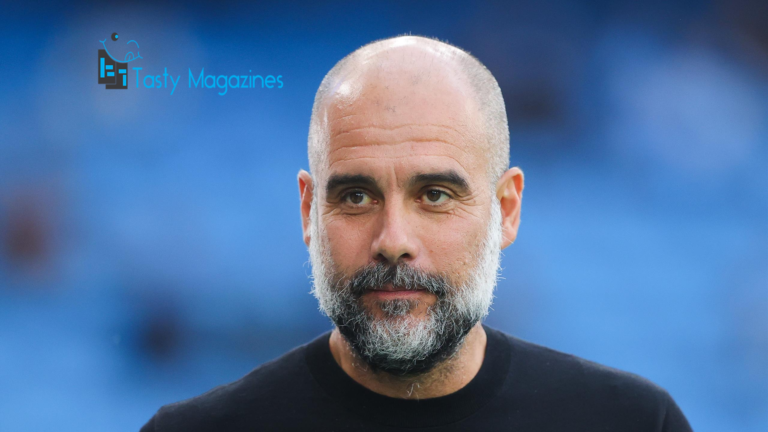When it comes to football managers who have revolutionized the modern game, Pep Guardiola stands in a class of his own. From his early days as a player to becoming one of the most successful coaches in the world, Guardiola has left an indelible mark on football. His unique approach to the game, tactical innovations, and relentless pursuit of perfection have earned him accolades and trophies across multiple leagues.
In this article, we’ll dive deep into Guardiola’s journey, his tactical philosophies, and the reasons behind his phenomenal success.
Early Life and Playing Career
Pep Guardiola’s Early Years
Born on January 18, 1971, in Santpedor, Spain, Josep “Pep” Guardiola Sala was introduced to football at an early age. His father, Valentí Guardiola, was a bricklayer, and his mother, Dolors, was a homemaker.
At the age of 13, Guardiola joined the La Masia, the youth academy of FC Barcelona. Little did anyone know that this would mark the beginning of a legendary football journey.
Pep the Player
Guardiola made his professional debut for Barcelona’s senior team in 1990 under the legendary coach Johan Cruyff. Playing as a defensive midfielder, Guardiola was the epitome of a “thinking footballer.”
Transition to Coaching

Pep Guardiola’s Early Coaching Career
After retiring as a player, Guardiola wasted no time transitioning into coaching. In 2007, he was appointed as the coach of Barcelona B, where he began to hone his managerial skills. The decision was met with skepticism initially, as Guardiola had little experience at the top level. However, what followed was nothing short of remarkable.
Barcelona: The Golden Era
His Barcelona team is often hailed as one of the greatest football sides in history. It wasn’t just the trophies that made this team special, but the way they played football.
Guardiola introduced a modernized version of “Tiki-Taka,” a system based on short, intricate passing, pressing high up the pitch, and dominating possession. With players like Lionel Messi, Xavi, and Andrés Iniesta, his team was almost unbeatable. Over the next four seasons, Barcelona would win 14 trophies, including three La Liga titles and two Champions League titles.
The Philosophy of Tiki-Taka
Guardiola’s brand of football was heavily influenced by his mentor, Johan Cruyff. However, Guardiola brought his own innovations to the system, most notably the concept of positional play. His teams dominated possession, often holding the ball for over 70% of the match, suffocating their opponents.
This relentless focus on control and attacking through coordinated team movements made Barcelona not just successful, but thrilling to watch.
Success Beyond Barcelona: Bayern Munich

Pep Guardiola’s Impact at Bayern Munich
After leaving Barcelona in 2012, Guardiola took a one-year sabbatical before joining Bayern Munich in 2013.
Though he didn’t manage to capture the Champions League with Bayern, Guardiola’s influence on the team’s playing style was undeniable.
Bayern Munich played a fluid, high-pressing game under Guardiola, breaking records for possession and goals scored in the Bundesliga.
Tactical Innovations at Bayern Munich
Guardiola’s Bayern team was known for its versatility. He experimented with different formations, such as the 3-4-3 and 4-1-4-1, and adapted his game plans to neutralize opponents.
Still, his time at Bayern was a period of growth for Guardiola as he continued to evolve as a manager.
The Manchester City Revolution

Pep Guardiola at Manchester City
In 2016, Guardiola took on his biggest challenge yet: managing Manchester City in the Premier League. Known for its physicality and unpredictability, the Premier League was a different beast compared to La Liga and the Bundesliga. There were doubts about whether Guardiola’s possession-based, intricate style would succeed in England.
However, after a trophyless first season, Guardiola built a team that dominated English football like never before.
Tactical Mastery in the Premier League
Guardiola’s success at Manchester City has been characterized by his tactical flexibility.
The 2022–2023 Treble
It was City’s first Champions League triumph, cementing Guardiola’s legacy as one of the greatest managers of all time. The final against Inter Milan was a tactical masterclass, with City controlling possession and nullifying their opponent’s counter-attacks.
This treble-winning team exemplified Guardiola’s football philosophy at its peak, blending technical excellence with tactical discipline.
Conclusion
Pep Guardiola is more than just a successful football manager—he is a visionary. Whether at Barcelona, Bayern Munich, or Manchester City, Guardiola has left an indelible mark on the sport.
His success is built on meticulous planning, a deep understanding of the game, and an unwavering commitment to his principles.
As football continues to evolve, one thing is certain: Pep Guardiola’s influence will be felt for generations to come.
FAQs
How many trophies has Pep Guardiola won as a manager?
As of 2023, Pep Guardiola has won over 35 major trophies as a manager, including Champions League titles, domestic league titles, and cup competitions.
What is Tiki-Taka football?
Guardiola popularized this style during his time at Barcelona, refining it into an art form.
Why did Guardiola leave Barcelona?
After a highly successful four-year stint at Barcelona, Guardiola left in 2012 citing the need for rest and rejuvenation after the mental and physical toll of managing one of the world’s biggest clubs.
Has Guardiola ever won the Champions League with Manchester City?
Yes, Pep Guardiola won his first Champions League title with Manchester City in the 2022–2023 season, completing a historic treble.
Who are some of the key players Guardiola has worked with?
Some of the key players Guardiola has worked with include Lionel Messi, Xavi, Andrés Iniesta, Kevin De Bruyne, Sergio Agüero, and Robert Lewandowski. Each player has thrived under his tactical system.
ALSO READ: Bernice Burgos Jaylen Brown


